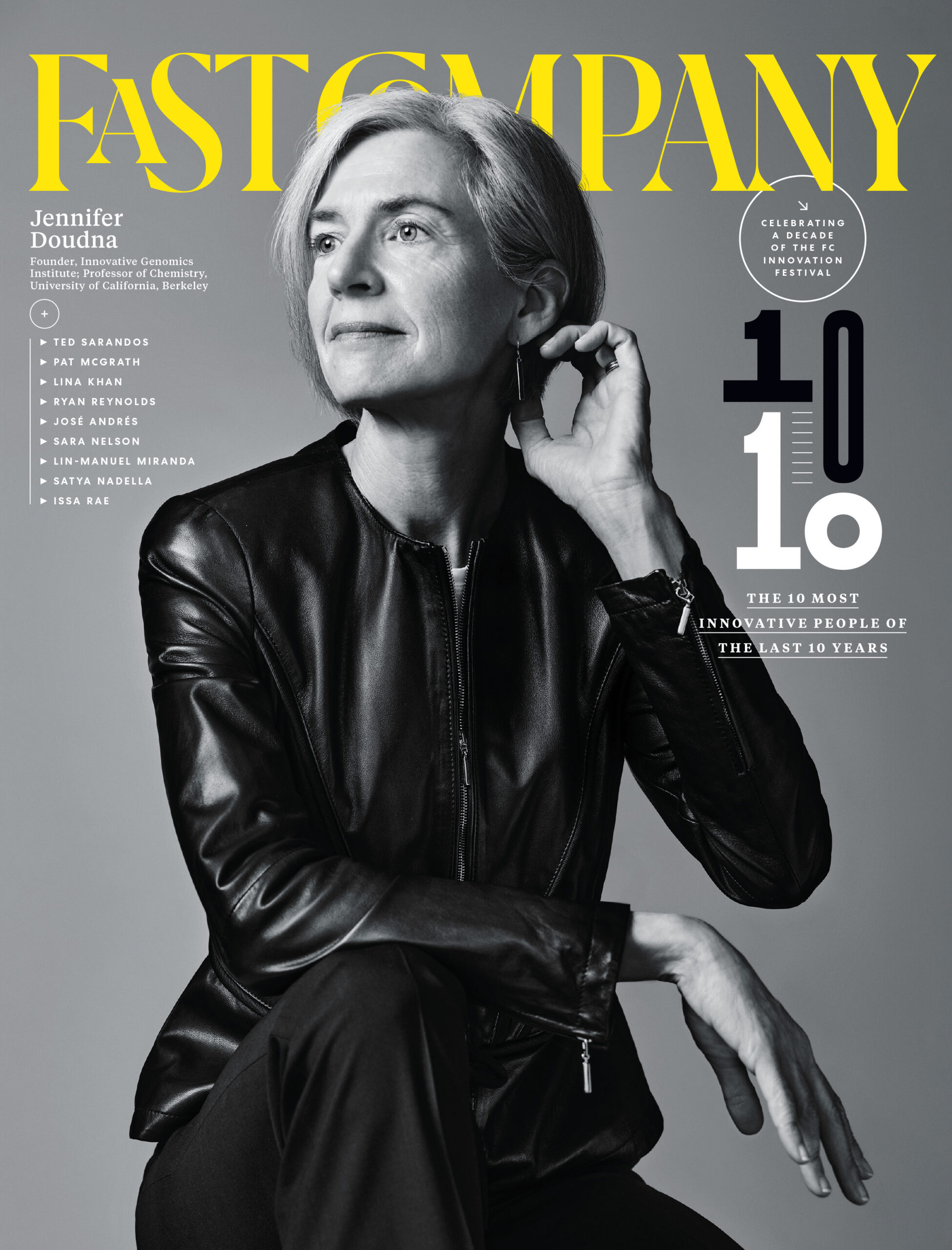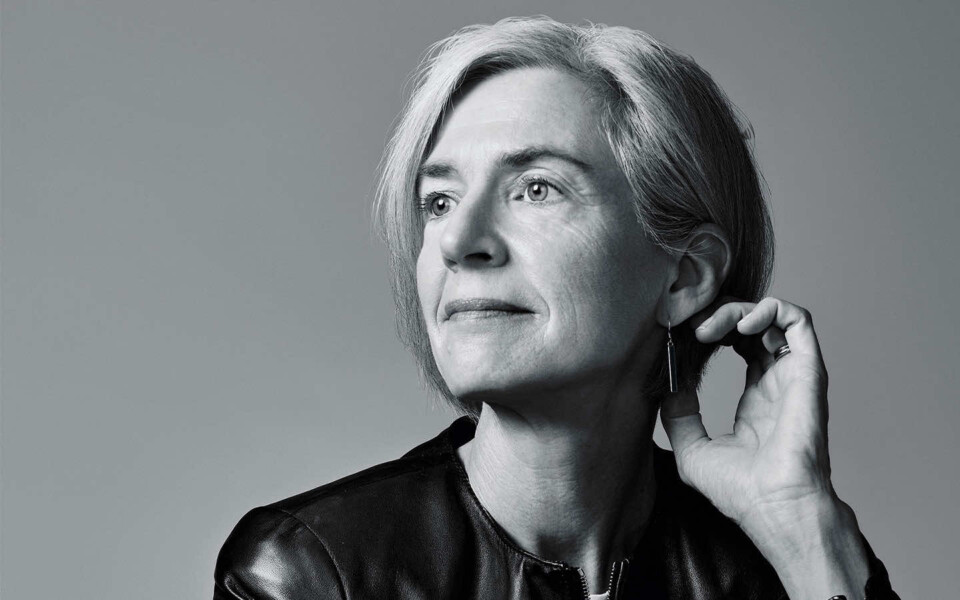10 Most Innovative People of the Last 10 Years
Why Jennifer Doudna is one of Fast Company’s 10 most innovative people of the last 10 years
Doudna codeveloped the revolutionary gene-editing technology known as CRISPR-Cas9. Now it’s leading to cures to some of the world’s most intractable diseases.
This story is part of a special series celebrating the 10th anniversary of the Fast Company Innovation Festival.

When biochemist Jennifer Doudna and her research partner, Emmanuelle Charpentier, published a paper in Science 12 years ago, they had a hunch that their findings would transform how genomics is used in medicine. The paper outlined a method they’d developed for editing DNA that used an RNA-based system known as CRISPR-Cas9. The approach was more efficient and precise than any prior gene-editing technology.
By the time Doudna and Charpentier were awarded the Nobel Prize in chemistry in 2020, CRISPR (short for “clustered regularly interspaced short palindromic repeats”) had engendered a biotechnology revolution. Today, researchers around the world are employing CRISPR to develop diagnostics for the Zika virus, disease models for Alzheimer’s, and therapeutics capable of attacking cancer cells. What started as a “cut, copy, and paste” gene-editing technique has expanded into a far broader toolkit for human health.
Last year, the technology began having real-world effects when the FDA approved the first CRISPR-based gene therapies for sickle cell disease. “It’s extraordinary talking to some of the patients,” Doudna says, who are finding the treatment “completely life-changing.”
But the therapies, which cost around $2 million per patient, are also a reminder of how much work remains to be done. The price is prohibitive, and delivering to the right cells and tissues remains tricky.
Doudna is tackling these challenges through her lab at the University of California, Berkeley, and the Innovative Genomics Institute, which she launched in 2014. She and her team are now developing a sickle cell therapy designed to be affordable for the millions of people worldwide who suffer from the disease; a clinical trial is in progress. The institute is also helping prevent childhood asthma through microbiome editing, developing disease-resistant bananas, and more.
Doudna is vocal about the ethical quandaries that CRISPR poses, calling at one time for a moratorium on its use in human germ-line engineering (the editing of sperm, egg, and embryo cells, which can have effects that last generations). “Transparency is very important,” she says…


